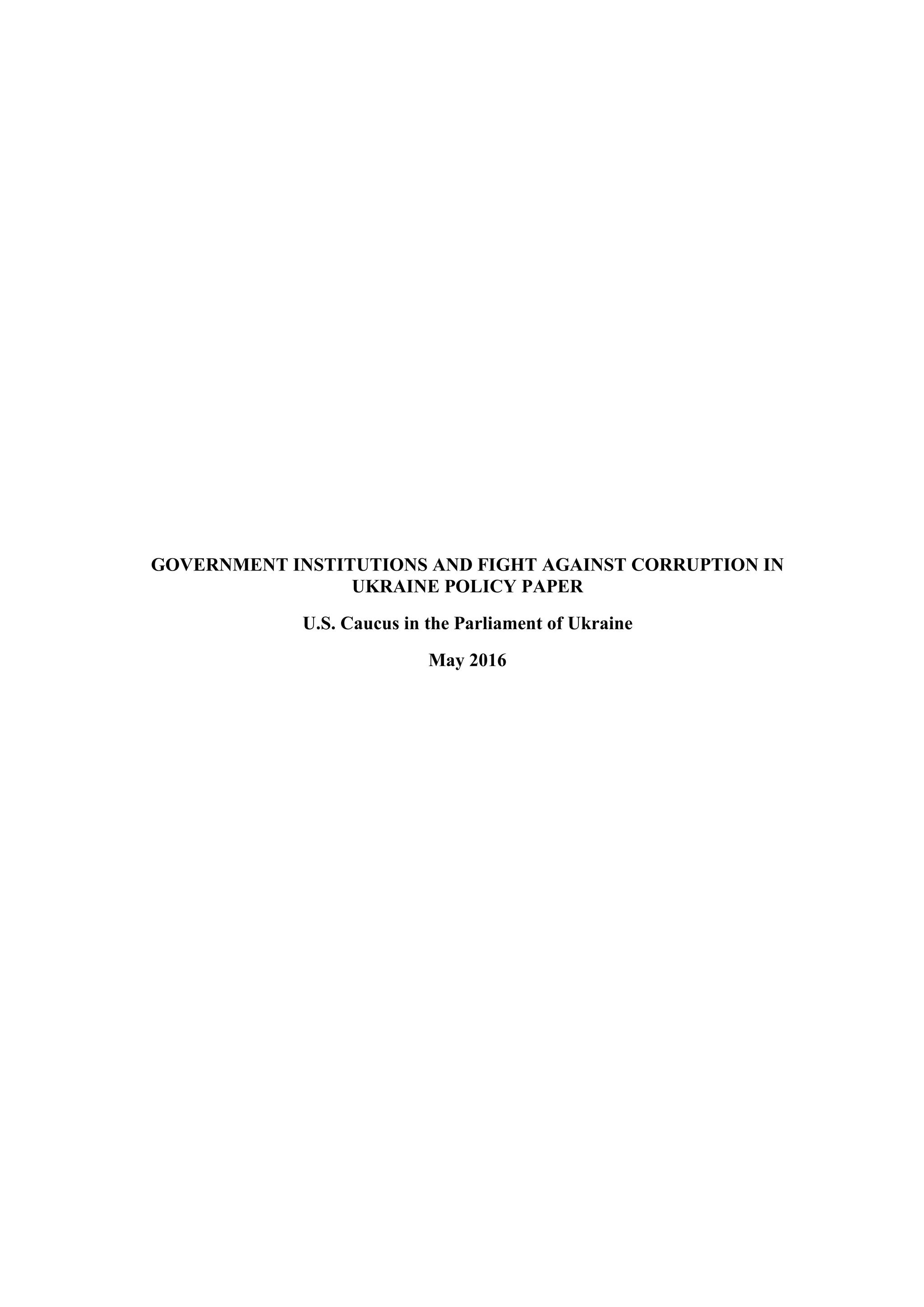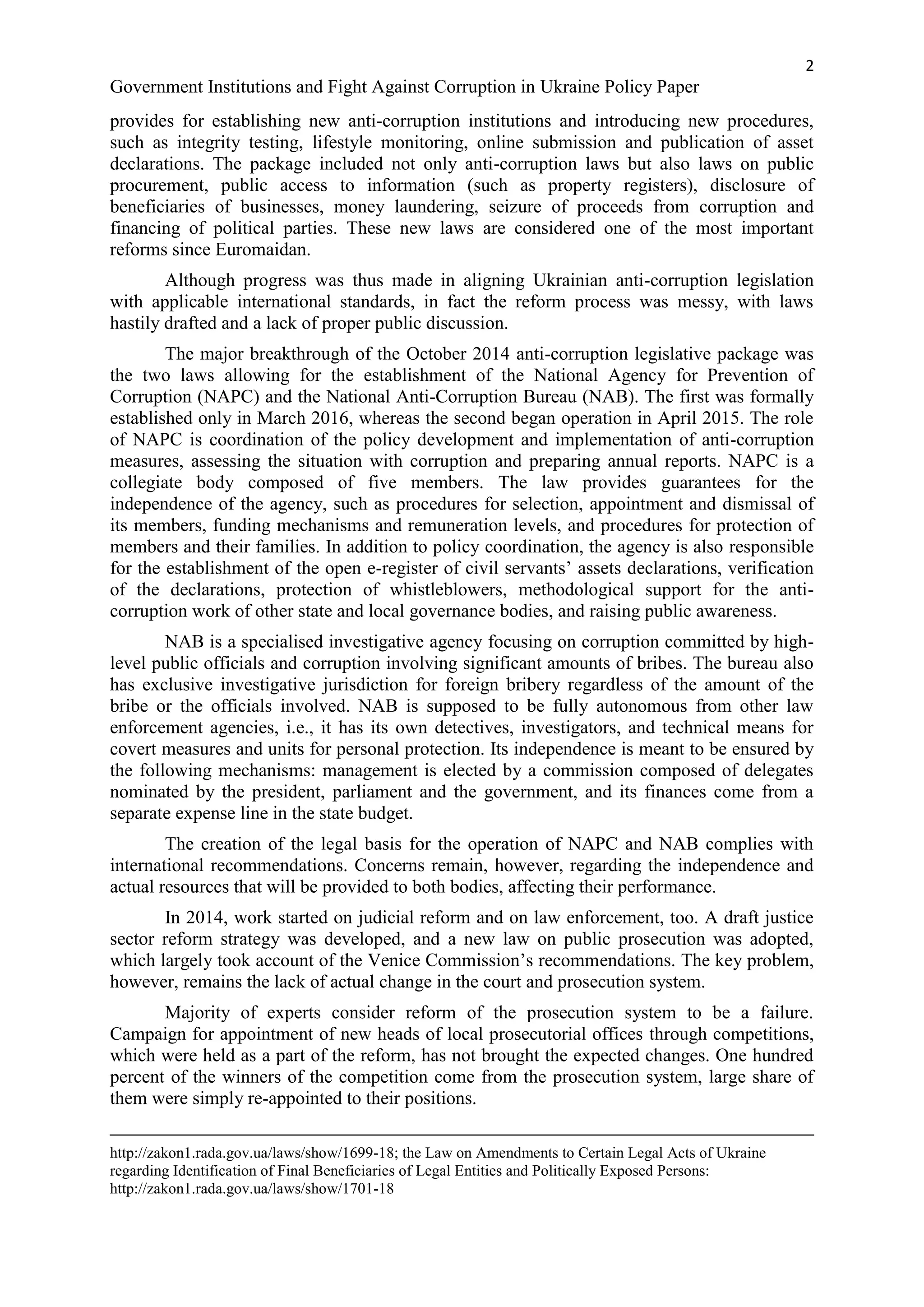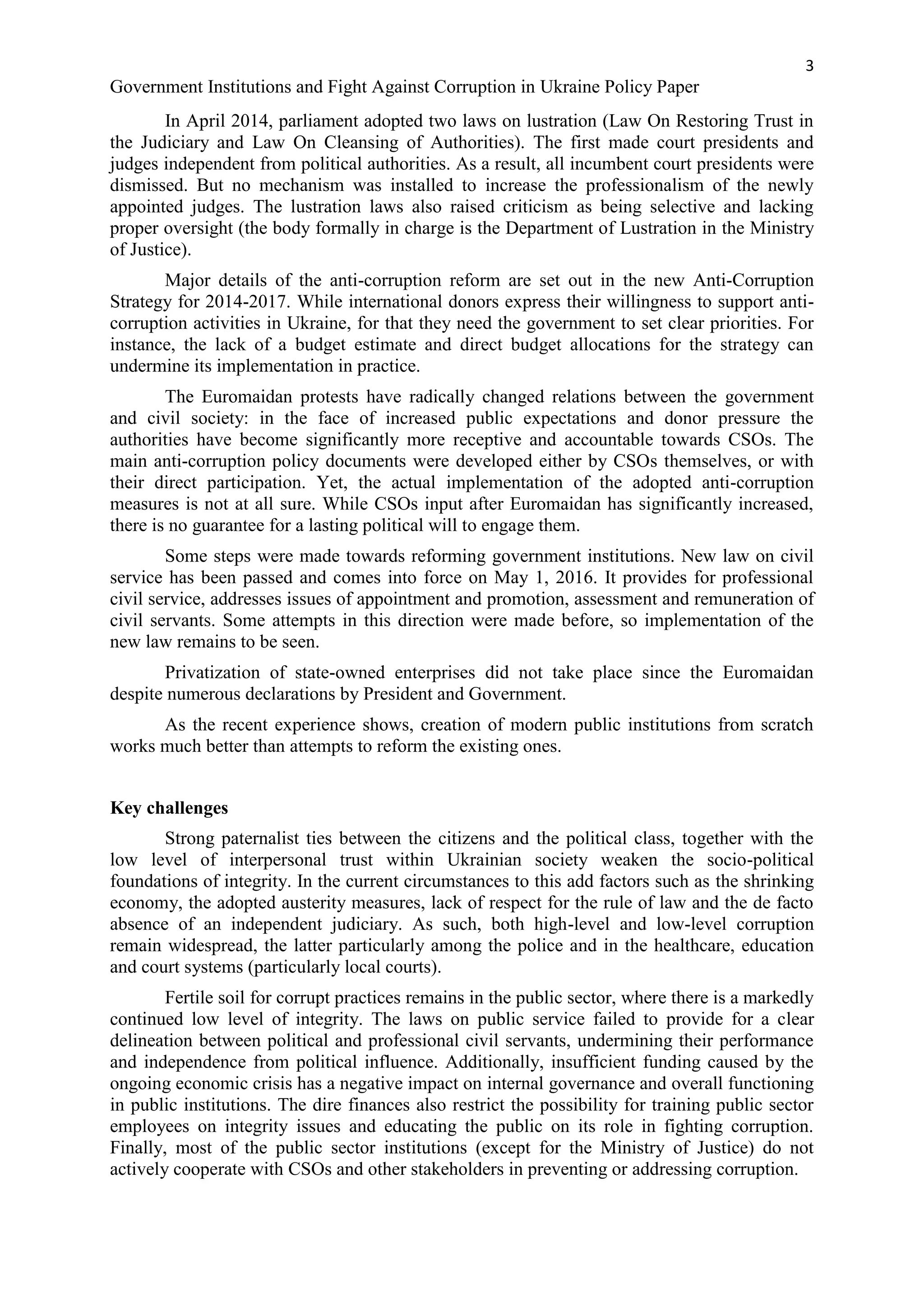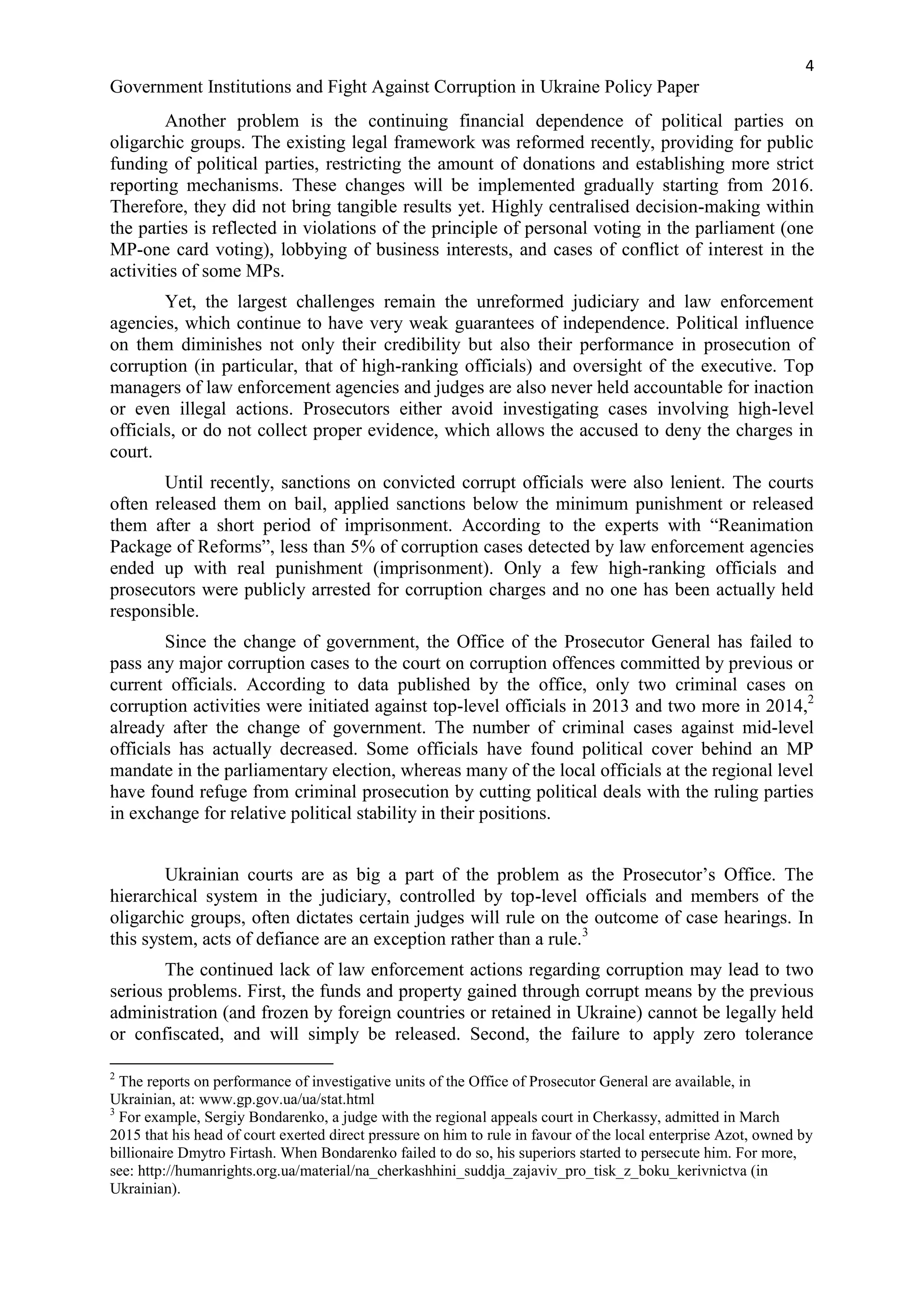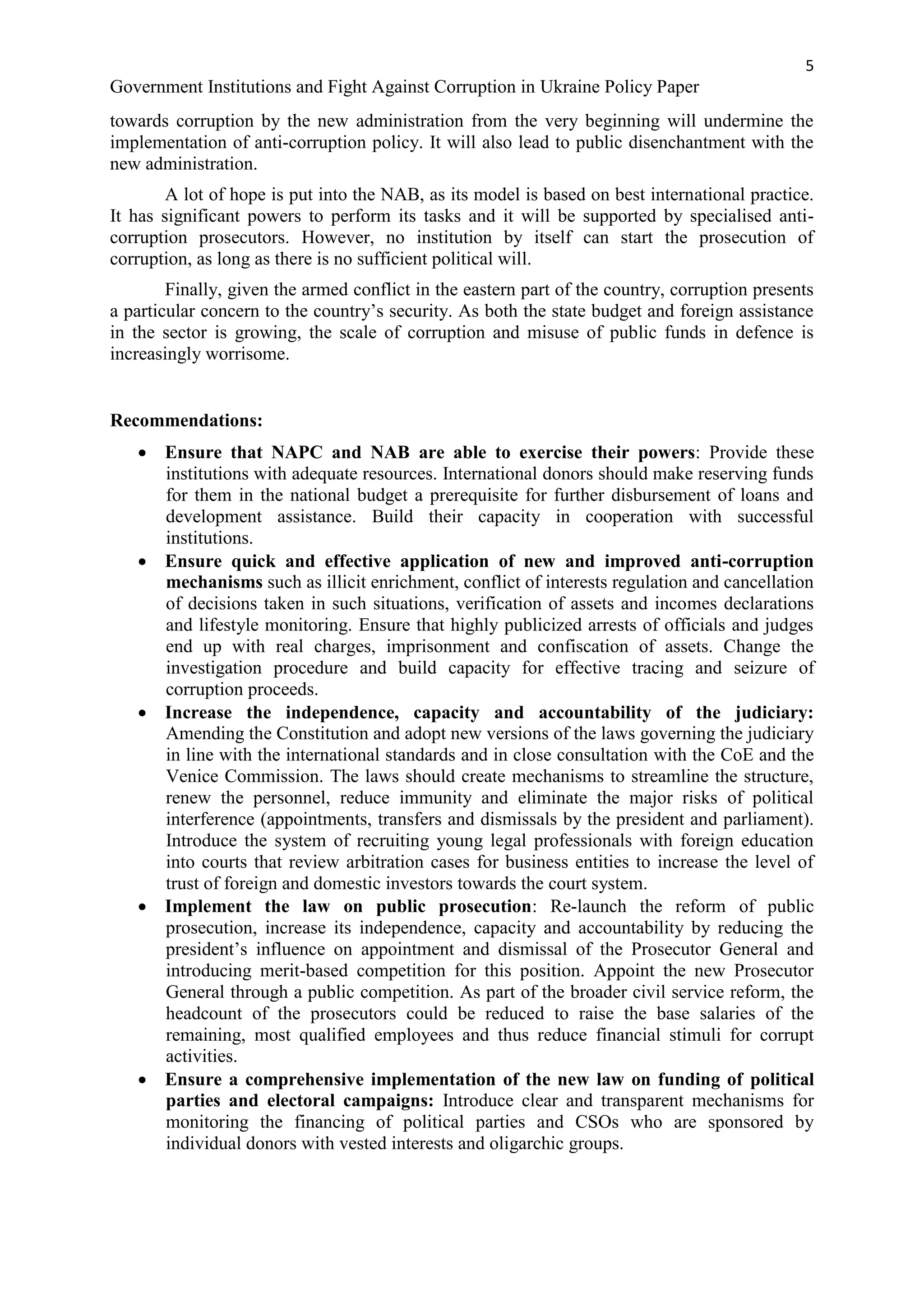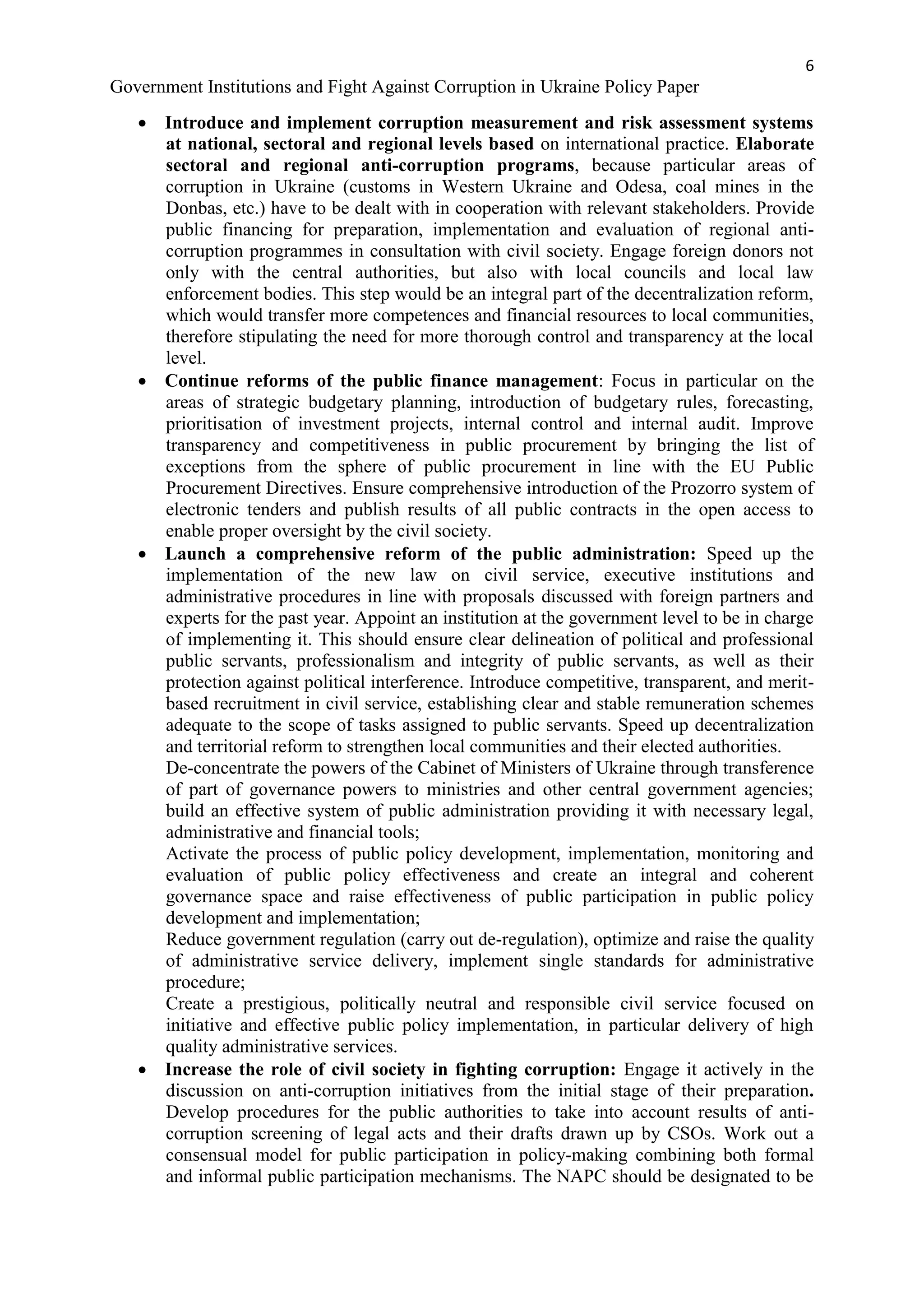This document summarizes the key issues around corruption and government institutions in Ukraine. It notes that corruption is widespread and permeates all areas of economic activity, undermining business and investment. While some anti-corruption laws and agencies have been established since 2014, major challenges remain including unreformed judiciary and law enforcement systems that remain subject to political influence. The document recommends ensuring independence of new anti-corruption agencies, reforming the judiciary, implementing new anti-corruption laws and prosecution service reforms, regulating political party financing, and introducing corruption measurement systems.
